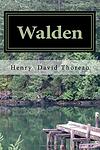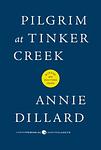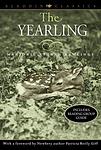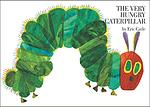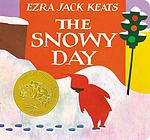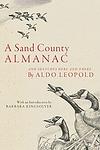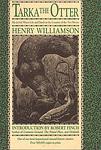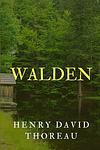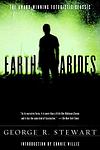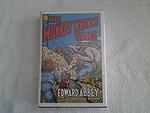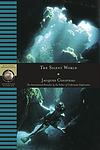The Greatest "Nature & Environment" Books of All Time
Click to learn how this list is calculated.
This list represents a comprehensive and trusted collection of the greatest books. Developed through a specialized algorithm, it brings together 284 'best of' book lists to form a definitive guide to the world's most acclaimed books. For those interested in how these books are chosen, additional details can be found on the rankings page.
Genres
The "Nature & Environment" category encompasses a broad range of books that delve into the intricacies of the natural world and the complex relationship between humans and their environment. Titles within this genre may explore topics such as wildlife, ecosystems, conservation efforts, climate change, and sustainability. They can include scientific texts that provide in-depth analysis of environmental processes, as well as more narrative-driven works that aim to inspire appreciation and stewardship of nature through personal anecdotes, stunning photography, and explorations of the beauty and diversity of the Earth's flora and fauna. This category is designed for readers who are curious about the planet's natural wonders, concerned about environmental issues, and interested in learning about ways to protect and preserve the world for future generations. Whether through practical guides on living more sustainably or through compelling stories of outdoor adventure, books in the "Nature & Environment" genre aim to educate, inform, and sometimes mobilize readers to engage with the natural world around them.
Countries
Date Range
Reading Statistics
Click the button below to see how many of these books you've read!
Download
If you're interested in downloading this list as a CSV file for use in a spreadsheet application, you can easily do so by clicking the button below. Please note that to ensure a manageable file size and faster download, the CSV will include details for only the first 500 books.
Download-
1. Silent Spring by Rachel Carson
This influential environmental science book presents a detailed and passionate argument against the overuse of pesticides in the mid-20th century. The author meticulously describes the harmful effects of these chemicals on the environment, particularly on birds, hence the metaphor of a 'silent spring' without bird song. The book played a significant role in advancing the global environmental movement and led to a nationwide ban on DDT and other pesticides in the United States.
-
2. Walden by Henry David Thoreau
This work is a reflection upon simple living in natural surroundings, inspired by the author's two-year experience of living in a cabin near a woodland pond. Filled with philosophical insights, observations on nature, and declarations of independence from societal expectations, the book is a critique of the complexities of modern civilization and a call to appreciate the beauty and simplicity of the natural world. It explores themes such as self-reliance, solitude, and the individual's relationship with nature.
-
3. Dune by Frank Herbert
Set in a distant future, the novel follows Paul Atreides, whose family assumes control of the desert planet Arrakis. As the only producer of a highly valuable resource, jurisdiction over Arrakis is contested among competing noble families. After Paul and his family are betrayed, the story explores themes of politics, religion, and man’s relationship to nature, as Paul leads a rebellion to restore his family's reign.
-
4. Watership Down by Richard Adams
This novel follows a group of rabbits as they flee their warren due to a foreseen catastrophe. The rabbits, led by Hazel and his psychic brother Fiver, face numerous challenges and adventures as they search for a new home. They encounter predators, hostile rabbit communities, and human threats. The book explores themes of leadership, survival, and freedom, all set within the natural world and its inherent dangers.
-
5. On Liberty by John Stuart Mill
This influential philosophical work explores the concept of personal freedom and societal limits, arguing that individuals should have the right to act as they want, provided they do not harm others. The book elaborates on the nature and limits of the power that can be legitimately exercised by society over the individual, and champions individuality and nonconformity. It also discusses freedom of speech, asserting that all opinions should be openly expressed to prevent any single viewpoint from becoming dogma.
-
6. Against Nature by J. K. Huysmans
The novel follows the life of an eccentric aristocrat who retreats from society to live in isolation, dedicating himself to the pursuit of excessive aestheticism. He surrounds himself with art, literature, and music, and indulges in sensual pleasures and extravagant interior decoration. The protagonist's obsession with artifice over nature and his quest for absolute individualism and self-gratification are explored, reflecting the decadent movement of the late 19th-century France.
-
7. Pilgrim at Tinker Creek by Annie Dillard
This book is a personal narrative of the author's explorations near her home at Tinker Creek in Virginia's Blue Ridge Mountains. The narrative is filled with detailed observations on nature and philosophical musings. It reflects on themes of solitude, the presence of God in nature, and the interconnectedness of life. The author's deep reflections and contemplations about the mysteries and beauty of the world make it a profound meditation on the natural world.
-
8. The Snow Leopard by Peter Matthiessen
"The Snow Leopard" is a travelogue that recounts the author's two-month journey in the Himalayas with naturalist George Schaller. The duo trek through the rugged and remote mountains of Nepal on a quest to study the rare blue sheep and possibly spot the elusive snow leopard. The book is as much a spiritual journey as it is a physical one, with the author seeking solace and understanding following the death of his wife. The narrative explores themes of grief, nature, and Buddhism, offering a poignant and introspective look at life and loss.
-
9. The Worst Journey in the World by Apsley Cherry-Garrard
"The Worst Journey in the World" is a gripping account of the Terra Nova Expedition to the South Pole in 1910-1913. The book vividly describes the perilous journey undertaken by a team of explorers, their struggles with brutal weather conditions, and the tragic loss of their leader and four other members on their return from the Pole. The narrative is not only about physical survival in harsh conditions, but also about the psychological toll of such an expedition, making it a timeless testament to human endurance and spirit.
-
10. The Yearling by Marjorie Kinnan Rawlings
"The Yearling" is a coming-of-age story set in the late 19th century, in the scrubland of Florida. It follows a young boy who adopts an orphaned baby deer and nurtures it into adulthood. As the deer grows, it begins to cause problems for the boy's family, who are struggling to survive as subsistence farmers. The boy is eventually forced to choose between his love for the deer and his responsibility to his family, leading to a heartbreaking decision that marks his transition into adulthood.
-
11. The Very Hungry Caterpillar by Eric Carle
The book is a beautifully illustrated children's story that follows the journey of a small caterpillar who eats his way through a variety of foods, growing bigger and bigger, until he eventually transforms into a beautiful butterfly. The story is not only entertaining but also educational, teaching children about the life cycle of a butterfly and the days of the week.
-
12. The Snowy Day by Ezra Jack Keats
The book tells the story of a young boy's adventures on a snowy day. He wakes up to find his city covered in snow and spends the day exploring, making tracks, building a snowman, and even trying to save a snowball for the next day. The story beautifully captures the wonder and joy that a child experiences during a snowfall, making it a timeless classic for children.
-
13. Desert Solitaire by Edward Abbey
Desert Solitaire is a collection of vignettes about life in the wilderness that reflects on the fierce beauty of the desert, the cruel indifference of nature, and the reckless destruction of the American West. The book, based on the author's experiences as a park ranger in Utah, explores the spiritual and philosophical dimensions of the desert environment, critiquing the commercialization and urbanization of the wild, and underscoring the importance of preserving natural landscapes.
-
14. A Sand County Almanac by Aldo Leopold
This book is a compilation of nature-related essays that highlight the author's experiences and observations as a conservationist. The author provides a thoughtful and eloquent reflection on the relationship between land and people, emphasizing the importance of conservation and sustainability. Through his writings, he advocates for a 'land ethic' where humans view themselves as part of the natural community rather than conquerors of it, promoting a harmonious coexistence with nature.
-
15. The Voyage of the Beagle by Charles Darwin
This book is a vivid and exciting travel memoir as well as a detailed scientific field journal covering biology, geology, and anthropology that demonstrates the author’s keen powers of observation, written at a time when Western Europeans were still discovering and exploring much of the rest of the world. The author's five-year journey took him from the coasts of South America, Australia, and Africa to the South Pacific islands, during which he collected and documented the natural history of these areas. The voyage and the specimens he brought back would later form the basis for his famous theory of evolution.
-
16. Extinction by Thomas Bernhard
"Extinction" is a novel that explores the dark and complex themes of family, identity, and history through the eyes of its protagonist, a professor living in Rome. When he receives news of the deaths of his parents and brother in a car accident, he is forced to confront his past and his Austrian heritage. The narrative delves into his thoughts and feelings, his criticisms of his family and society, and his philosophical musings on life and death, all while he prepares to return to his family's estate for the funeral. The novel is renowned for its dense, stream-of-consciousness style and its unflinching examination of the human condition.
-
17. The Tree of Man by Patrick White
This novel tells the story of Stan Parker, an ordinary and hardworking man living in the Australian outback. The narrative chronicles his life, including his marriage to Amy, the birth of their two children, and the various struggles they face such as financial hardship, natural disasters, and the challenges of rural life. The book provides a deep and introspective look into the human condition, exploring themes of love, death, faith, and the search for meaning.
-
18. Tarka the Otter by Henry Williamson
"Tarka the Otter" is a novel that follows the life of an otter, Tarka, in the wild. The story is set in North Devon, England and provides a detailed account of Tarka's experiences, from his birth to his eventual death, exploring his interactions with other animals, his struggles for survival, and his encounters with humans. The narrative is noted for its vivid and realistic descriptions of wildlife and the natural world.
-
19. Essays of Henry David Thoreau by Henry David Thoreau
This collection of essays presents the profound reflections of a renowned philosopher and naturalist on a variety of subjects, including nature, self-reliance, civil disobedience, and transcendentalism. The author's eloquent prose and deep insights into human existence and the natural world continue to inspire readers, offering a timeless perspective on living a meaningful, deliberate life. His views on individualism and nonconformist thought have had a significant impact on both personal and political spheres.
-
20. Earth Abides by George Rippey Stewart
"Earth Abides" is a post-apocalyptic novel that follows the story of a geography student who returns from a solo trip in the mountains to find that most of humanity has been wiped out by a deadly plague. As one of the few survivors, he navigates through the deserted world, eventually forming a small community with other survivors. The novel explores themes of survival, the fragility of civilization, and the importance of community in the face of adversity.
-
21. The Monkey Wrench Gang by Edward Abbey
"The Monkey Wrench Gang" is a novel about four environmental activists who form a group to sabotage projects that they believe harm the natural environment in the American Southwest. The group's activities range from vandalism to arson, as they target billboards, bridges, and bulldozers, among other things. The novel explores themes of civil disobedience, the ethics of violence, and the tension between individual freedom and societal structures, all set against the backdrop of the expansive western landscape.
-
22. My First Summer in the Sierra by John Muir
This book is a personal narrative of the author's journey through the Sierra Nevada Mountains in California during the summer. The author, a naturalist, describes in detail the stunning landscapes, flora, and fauna he encounters during his exploration. His deep appreciation for nature and wilderness is evident in his vivid descriptions and philosophical reflections. The book serves as a call to preserve and respect the natural beauty of the environment.
-
23. The Silent World by Jacques Cousteau
"The Silent World" is an autobiographical account of a pioneering oceanographer and his team's underwater explorations. The book documents their adventures and discoveries, including the development and use of the first scuba diving equipment. The author shares his experiences of exploring shipwrecks, interacting with various marine life, and the dangers they faced in the depths of the ocean. The book also emphasizes the importance of marine conservation and the need to protect our oceans.
-
24. The Natural History and Antiquities of Selborne by Gilbert White
"The Natural History and Antiquities of Selborne" is an exploration of the natural world in the English village of Selborne. The author, through a series of letters, provides detailed observations and insights into the flora, fauna, weather and geology of the area. The book also sheds light on the history and antiquities of the village, offering a comprehensive view of Selborne during the 18th century.
-
25. The Sixth Extinction: An Unnatural History by Elizabeth Kolbert
The book explores the concept of the sixth extinction, suggesting that we are currently in the midst of it due to human activity. By examining previous mass extinctions and the current rapid loss of species, the author argues that humans are causing a mass extinction event through climate change, habitat destruction, and spreading of non-native species. The book offers a sobering look at the impact of human behavior on the natural world, emphasizing the urgency of addressing these environmental issues.
Reading Statistics
Click the button below to see how many of these books you've read!
Download
If you're interested in downloading this list as a CSV file for use in a spreadsheet application, you can easily do so by clicking the button below. Please note that to ensure a manageable file size and faster download, the CSV will include details for only the first 500 books.
Download
